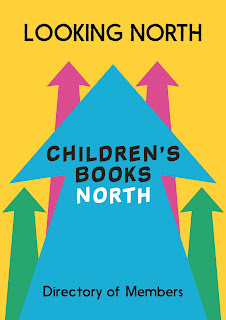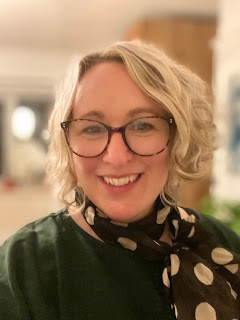Guest Northern Highlights - Jason Vit (National Literacy Trust)
GUEST NORTHERN HIGHLIGHTS
Jason Vit, Head of Local Area National Literacy Trust
Can you tell us a little bit about the work of the National Literacy Trust in your Northern regional hubs?
Our first National Literacy Trust Hub was in the North East, in Middlesbrough. It was there that we developed a whole new way to respond to intergenerational low literacy by establishing Literacy Hubs. They are now in 15 places around the country along with our region-wide work in the North East and across Suffolk. Along with Middlesbrough, our other focus areas are Blackpool, Bradford, Scarborough, Doncaster and Manchester. Read North East is a campaign that runs across the region and encompasses ten local authorities. Our big focus has been on the early years and getting key messages out to support parents (along with books) to help them provide the most literacy rich environment they can at home. We've got great support from Penguin Random House, Walker Books, Faber and Bloomsbury. As well as getting to work with lots of brilliant local publishers too (we're always interested in hearing from local presses, so reach out if you haven't heard from us yet!). With an area as big and diverse as the north-east what we do varies a lot; there has been major book gifting via foodbanks and community groups, more formal projects with schools and early years settings and some of the promotional pushes like getting Spot the Dog on the side of buses. At the heart of all our work though are the great creative partners who work with us.
Why is it so important to tailor the work of NLT specifically to different regions?
Our work has to be different in every region because the people are different and what they need and want is different. It can be as simple as making sure we are working with authors who families can relate to or planning events in places that families want to go to, but there is more to it. The partners in an area and what they are prioritising matter a lot. National organisations like Seven Stories have loads to offer and we can work with them to engage with more of the families we both want to reach, or a particular library service might be doing a big push on 'Shelf-help' and wellbeing and again, we might be able to add value. Working in different ways means our work is more sustainable because it is linked in with what is already happening on the ground, and we learn more about different ways to work that we can use elsewhere.
What for you is the spirit of the North?
A real sense of creative optimism. There are so many great programmes and partnerships and the people we work with are always willing to try something new and give it a go.
Do you have any projects coming up in the next few months that you'd like to tell us about?
Our ongoing Connecting Stories project will be running festivals across our Northern Hubs throughout the summer, inviting lots of exciting authors, illustrators and creative partners to celebrate and share their stories.
What impact does working with local authors have on the children you work with?
Meeting an author can be transformational for a child. Whether the meeting is in person or virtual, an author can turn around what a child thinks about reading. Most of us who love to read also find it easy. We have lots of positive memories about reading, things we've learned, used and shared with other people. A child who doesn't have that relationship with reading yet and thinks of it as a chore needs that lightbulb moment that reading is so much more. Meeting a 'real life' author is often that moment: someone who can talk about how all ideas can be good ideas, that it is Ok to make mistakes, write things you don't like and get rid of them later, someone who can bring a book to life. When that author is from the same area, it's even better. Seeing someone who has walked the same streets as you and is now an author opens up possibilities in the minds of children in a way that nothing else can.
What do you hope to see from publishing and creative industries in the north?
The nurturing of talent in the north which ideally stays in the north too. New books being launched in northern cities first, and more generally the creative industries working well together so that young people can more easily navigate opportunities to learn from other creatives, while trying to find their own path.
What's your favourite children's book set in the north?
Impossible to choose just one! We've recently been reading Ross Welford's The 1000 Year Old Boy and loved it. But also Danielle Jawando's brilliant And the Stars Were Burning Brightly for older readers, a must-have for school libraries (shout out to Manchester!)
Twitter: @Literacy_Trust
Instagram: @literacy_trust




.png)



Comments
Post a Comment